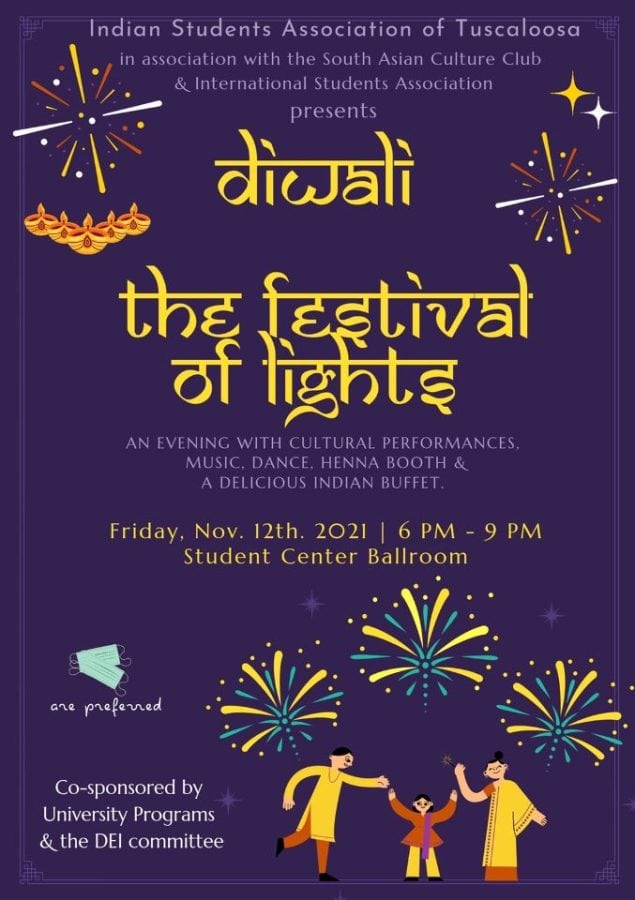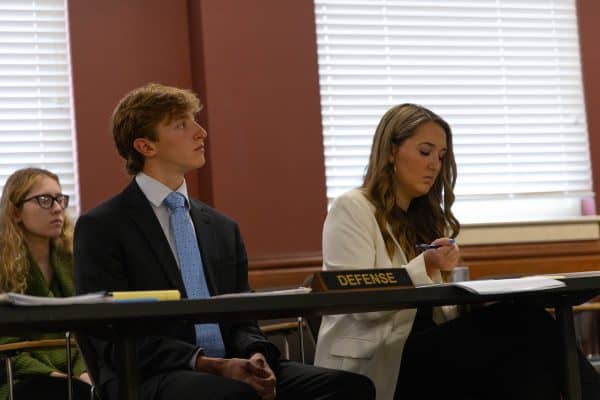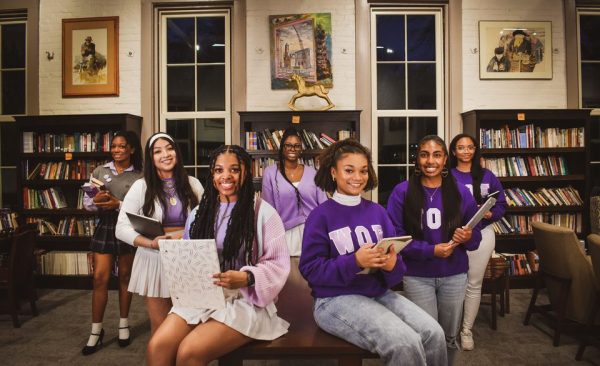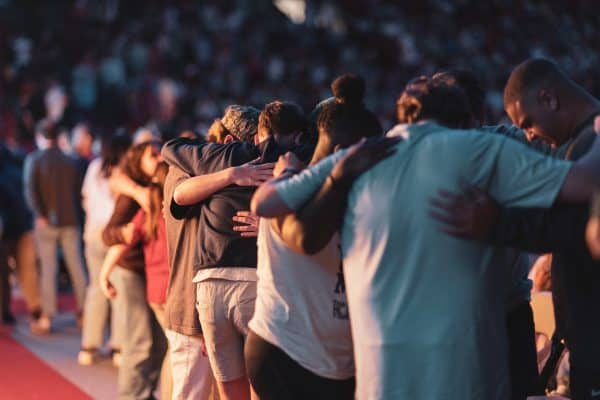The Capstone celebrates the Festival of Lights
November 11, 2021
In honor of Diwali, a major holiday celebrated mainly by people of the Hindu, Jain and Sikh religions, the Indian Students Association of Tuscaloosa has partnered with the South Asian Culture Club for a celebration on Friday. Diwali, typically observed for one to five days, celebrates new beginnings and the victory of good over evil.
Abhinandhan Narayanan, the president of the Indian Students Association of Tuscaloosa and a graduate research assistant in the Department of Mechanical Engineering, said the event will offer Indian cultural performances and games, as well as henna stations, a photo booth and plenty of Indian food.
“This year’s Diwali event is the concoction of innovative ideas from the creative minds of the Indian Students Association of Tuscaloosa and South Asian Culture Club committee,” he said.
Diwali, often called the Festival of Lights, takes many forms that vary by region and cultural background, but most celebrations feature the lighting of firecrackers or lamps.
Architha Bommena, a sophomore majoring in psychology, observes this tradition through prayer, a family meal and sparklers.
“We celebrate the triumph of light over dark and of good over evil. It’s just about remembering to always keep the lights on,” she said.
For Bommena, Diwali represents the return of Lord Rama to his kingdom after 14 years of exile and the joyful celebration upon his reentry.
Amrita Bakshi, a doctoral candidate studying English, is from the Bengal region of India where the festival is not called Diwali at all. Rather, she and others near her home worship the goddess of destruction, Kali, in a celebration called Kali Puja. This festival aligns with the Nov. 4 date for Diwali, and Bakshi described it as “a way of celebrating female power triumphing over evil.”
Bakshi recalled a fond memory with her father, who passed away several years ago, when they visited rural workers who made fireworks for Kali Puja. She cited this as one of the key things she missed about celebrating at home.
“We don’t buy fireworks from the market, we buy them directly from [the workers]. We used to drive all the way to their places and see how the fireworks were getting made,” Bakshi said.
Both women stressed the cultural significance of Diwali across various parts of the world.
“Some people don’t realize how important it is to people all over India and across South Asia,” Bommena said. “It’s almost like celebrating Christmas here. It’s just a great time for everyone to come together.”
Bakshi emphasized that India is a vast and diverse country, so the mythology behind Diwali is far from unified. However, she said the holiday has widespread importance for families because people can forget about their challenges and celebrate together.
Narayanan said that although last year’s event was highly successful, winning the “Event of the Year” award from the SOURCE, the committee is dedicated to making this year even better.
Questions? Email the Culture desk at [email protected].











